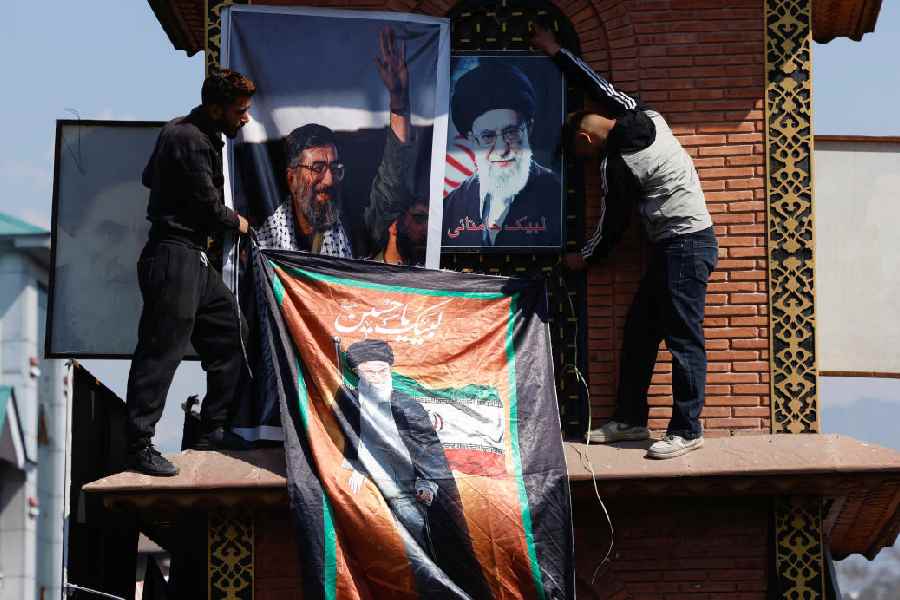 |
| Noor Inayat Khan |
Paris, Sept. 5: The Indian government has honoured the memory of World War II heroine Noor Inayat Khan, with defence minister Pranab Mukherjee visiting Fazal Manzil, her childhood home in Paris.
Noor was a secret agent who was the first woman wireless operator to be infiltrated into France under Nazi occupation. She was captured and shot by the Nazis in Dachau in 1944.
Although she was awarded the George Cross by Britain and the Croix de Guerre by France, India had not recognised her work for over 60 years, and she is hardly known in the land of her forefathers.
“She was a truly remarkable lady,” said the minister, who drove to Suresnes in the suburbs of Paris to visit the two-storey house where the Inayat family still lives. “Her courage and idealism must be recognised. I did not know about her, but now the book (Spy Princess by Shrabani Basu) is out and I know her story. I would like to pay my respects,” Mukherjee added.
When the war broke out in 1939, Noor and her brother Vilayat left for Britain to join the war effort. Although they were Sufis and believed in non-violence, they decided that it was criminal to stand by and watch the treatment of Jews by the Nazis.
In London, Noor joined the Women’s Auxiliary Air Force, where she was trained as a radio operator, and Vilayat volunteered for the Royal Air Force.
Yesterday on his visit to the house, Mukherjee gave a present to Mary Inayat Khan, widow of Vilayat. He signed the visitors’ book with the words: “Noor-un-nisa Inayat Khan was an extraordinary heroic woman who fought and gave her life for freedom and liberty.”
Noor was recruited by the Special Operations Executive, a crack organisation set up by wartime British Prime Minister Winston Churchill, because of her knowledge of French and her skill as a radio operator. She entered France with a false identity and the code name of Madeleine.
She became part of a group of secret agents whose main job was to supply money and arms to members of the French Resistance and to sabotage factories and railway lines to stop the advance of German troops.
A week after she reached Paris, her colleagues were arrested and she became the last radio link left with the French capital. Her bosses in London asked her to return as Paris was too dangerous, but she refused to leave, saying her role was crucial.
She is known in France as Madeleine of the Resistance (against Hitler’s occupation forces). A leafy square in Surenses, where her father Hazrat Inayat Khan moved into the large house gifted by a Sufi benefactor in 1920, is named after her.
The French government has put up a plaque outside the house in her memory and every year on Bastille Day, a band plays outside Fazal Mazil, or House of Blessing.
Noor’s father had left his hometown of Baroda to take Sufism to the West. She was born in Moscow in 1914 to Hazrat Inayat Khan and his American wife Ora Ray Baker who, after the outbreak of World War I, moved to England where they had three more children.
It was strange that driven by their ideological beliefs Noor and his brother went to work for the same British authorities who were suspicious of their father who had met Gandhi and Sarojini Naidu in London, and the family moved to Paris.
Mukherjee appeared moved when he entered the marble Sufi memorial built in the gardens of Fazal Manzil. He stood silently watching the framed photograph of Noor in her uniform, as the candles flickered before it.
He did not make any commitment whether India would give a posthumous award to Noor. “There are many people involved in deciding these things,” he said. “Let us see what we can do.”











